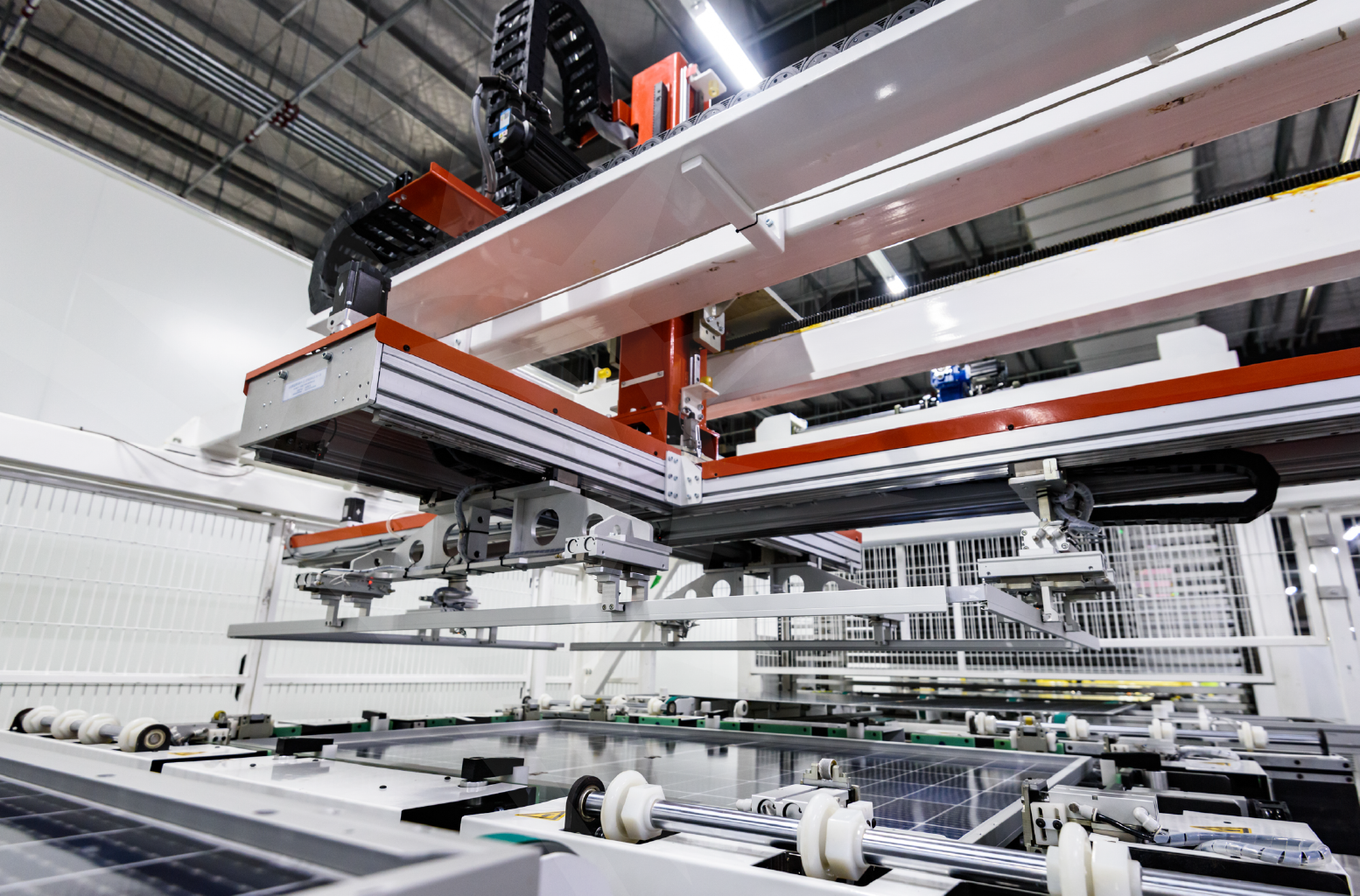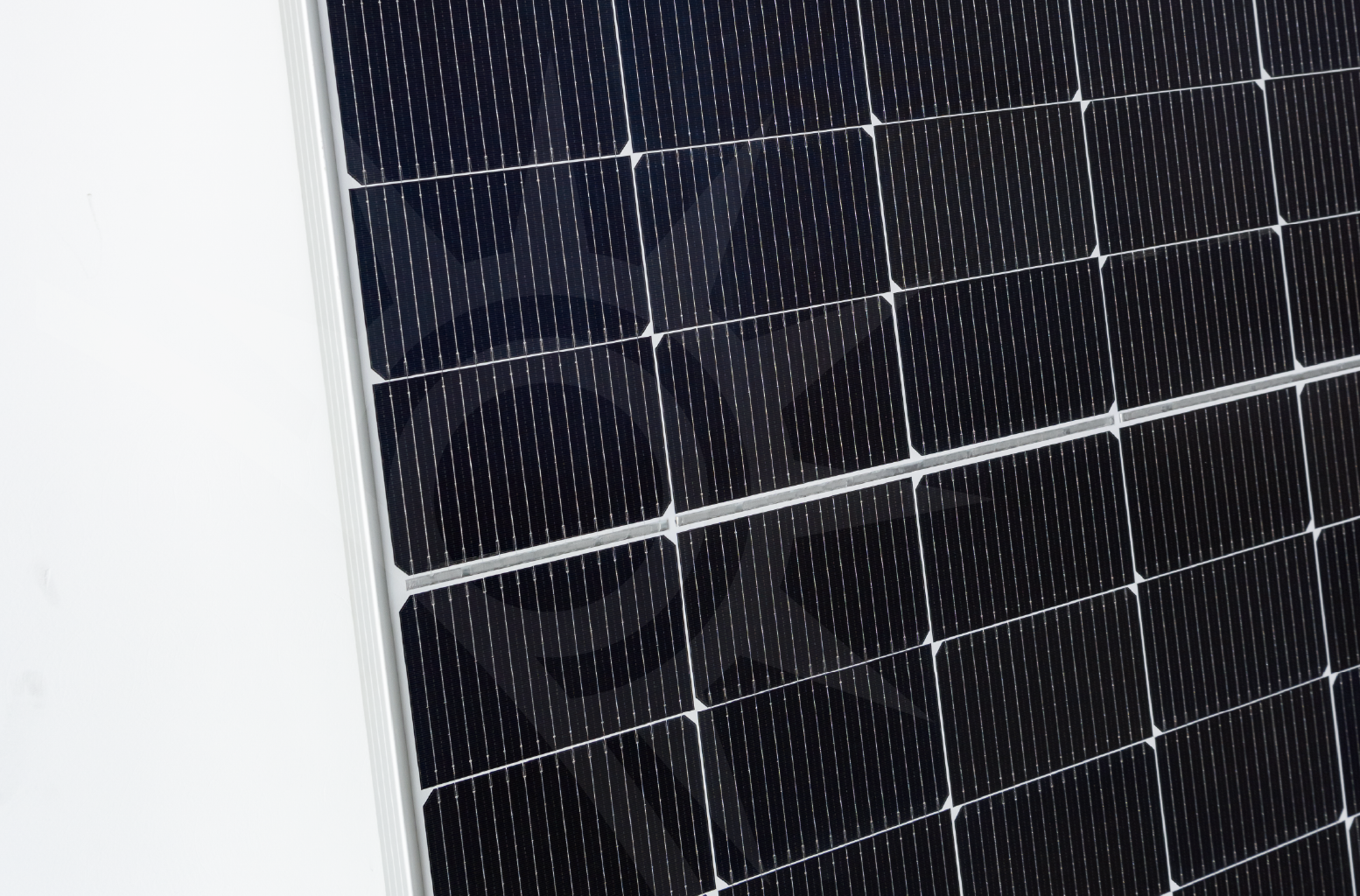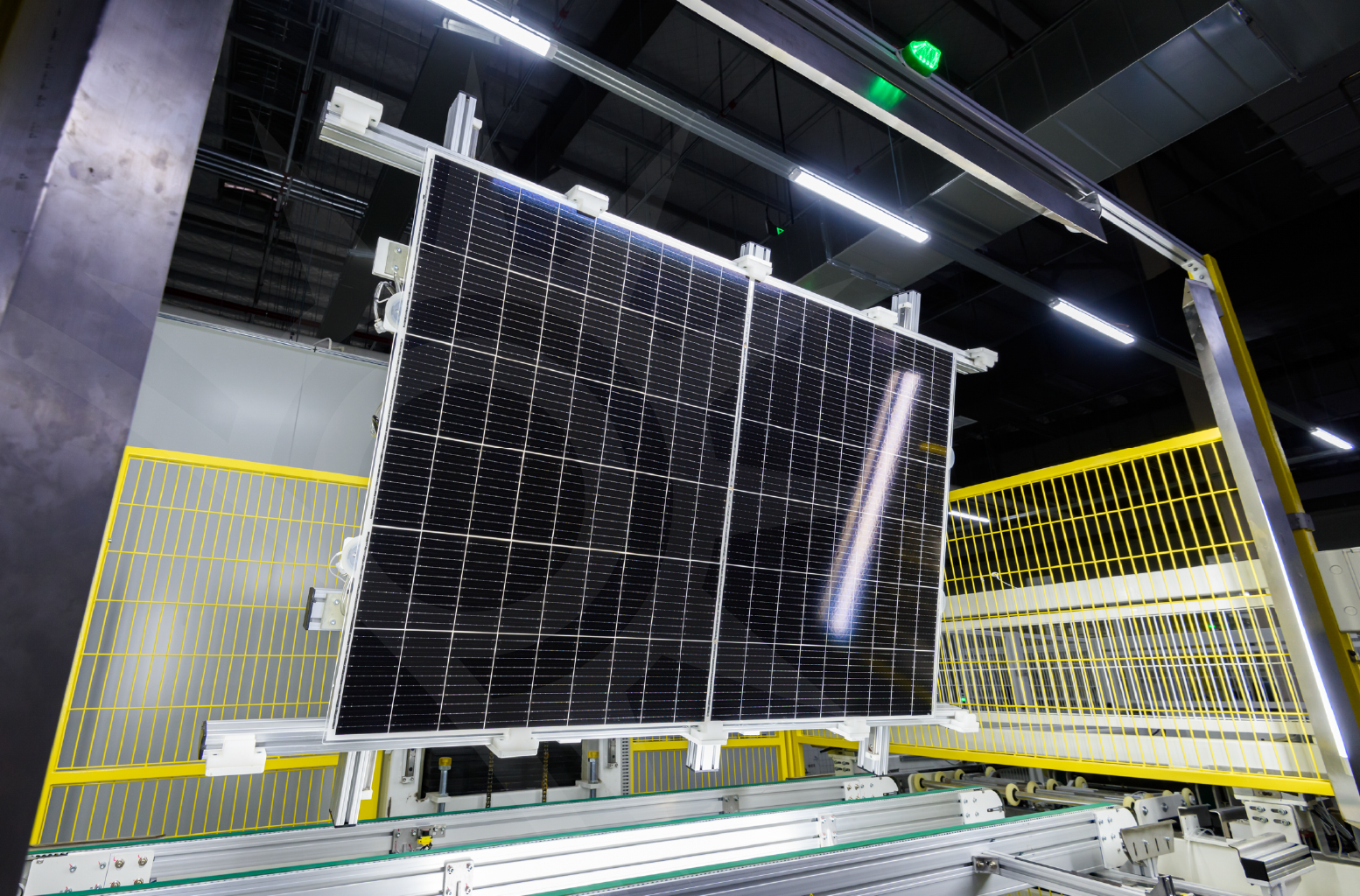Learn about some key features to consider when choosing and purchasing a photovoltaic module.
With the fast growth of solar energy in Brazil, the photovoltaic module market has expanded, bringing a wide variety of products to the country. Each product comes with its own specificities in terms of technology, manufacturing processes, or raw materials. In this context, Helius Sunlink PV, a pioneer in solar panel manufacturing, recognizes that beyond technical specifications, there are physical characteristics that differentiate one module from another. These include the choice of frame materials, specification labels, Inmetro certification and serial numbers, type and size of cells, type, thickness, and length of cables, and the material used for the module’s front and back.
For Helius, every detail is carefully designed to deliver high-performance, high-quality solutions, from research, development, and production to rigorous quality tests like Flash Testing and Electroluminescence Testing. These processes ensure that every element contributes to the creation of competitive, high-quality modules.
Below, we list 5 key characteristics of photovoltaic modules that impact their durability, longevity, and cost.
1 – Solar Panel Frames – Aluminum
Anodized aluminum is the most commonly used material for solar panel frames. The anodizing process enhances aluminum’s resistance to corrosion and wear.
Why aluminum? Aluminum has an expansion rate that allows it to expand and contract without compromising the structural integrity of the panel. This flexibility is essential to prevent thermal stress from weakening the panel’s joints and mounting points over time.
At Helius, panel frames have a thickness of 30mm. During installation, it is recommended to leave a minimum distance of 5mm between modules to ensure that thermal expansion does not affect their performance.

2 – Specification Labels
In a solar panel, labels play a critical role far beyond simply identifying features. Helius recognizes this importance and uses three specific types of labels on its products in Brazil: technical identification labels, serial number/barcode labels, and ENCE labels. All are located on the back of the modules.
Technical Identification Labels: These provide essential information such as nominal power, nominal current, nominal voltage, short-circuit current (measured under standard test conditions), maximum operating voltage, dimensions, and more. These details ensure quick and reliable access to product information.
Serial Number/Barcode Labels: Each Helius module has a unique encrypted serial number. This identification ensures product authenticity, protects against counterfeiting, and provides security for customers. The serial number is also essential for validating the product warranty.
ENCE Labels: The National Energy Conservation Label provides an official efficiency classification based on a standardized metric recognized throughout the country. By including the ENCE label, Helius demonstrates its commitment to energy efficiency standards and compliance with national and international regulations.
When choosing and installing a photovoltaic module, it is crucial to understand and identify the labels and pay close attention to the information provided, ensuring both product safety and integrity.
3 – Cell Type and Size
Over 20 years, Helius has developed and manufactured products using various cell types, including polycrystalline, PERC, and N-Type cells. For more on this evolution, refer to the article 20 Years of Helius.
Cell size also significantly impacts module efficiency. Thanks to advances in technology and the expertise of Helius’s Research and Development team, the company now manufactures modules with rectangular half-cells, enhancing panel performance. The Helius Genesis Plus 620W is a prime example, featuring rectangular half-cells with TopCon technology, delivering an efficiency of 22.95%.

4 – Cabling
Photovoltaic panels are equipped with specific cabling and MC4 connectors designed to “click and lock”. Since modules generate direct current (DC) energy, improperly connected or loose cables can pose a high risk of electrical arcing, potentially damaging the system or even causing fires.
Helius advises against altering or removing connectors to enable other types of connections. Regarding cable length, Helius offers customizable options. Eduard Krummenauer, the manufacturer’s Country Manager, notes: “Certain projects require cables of specific lengths. Recognizing this need, we saw an opportunity to customize cable lengths to suit customer requirements. We currently produce some modules with 2.30m cables specifically for projects with microinverters. This facilitates connections during system installation, eliminating the need for additional auxiliary cables.”
5 – Front and Back Materials
The materials used in the front and back layers of a photovoltaic module are critical. They protect the cells from hail, dust, and adverse environmental conditions. The choice of protective material directly impacts the module’s efficiency and durability.
In Helius modules, tempered glass with high transmission (3.2mm thick and low iron content) ensures maximum sunlight capture. This glass is engineered to meet the highest quality and performance standards, directly influencing the efficiency of Helius panels.
Photovoltaic cells are highly sensitive to impacts or mechanical stress. Choosing the right material to cover the cells significantly affects the module’s structural integrity and protection against micro-cracking.
The Helius Quality Standard
Although modules may appear similar at first glance, every component of Helius products contributes to their superior efficiency, durability, and reliability. From high-transmission tempered glass and anodized aluminum frames to customizable cabling and detailed labels, Helius Sunlink PV reflects its commitment to providing technological solutions tailored to customer needs with proven quality.
With 20 years of experience as a pioneer in solar panel manufacturing, Helius demonstrates that innovation and attention to detail are key factors in standing out in the solar energy sector. Choosing a module goes beyond appearances—it’s a decision that directly impacts the performance and longevity of the customer’s investment. Choosing Helius means opting for reliability, quality, innovation, safety, and a solid history of responsibility in the global solar energy industry.

